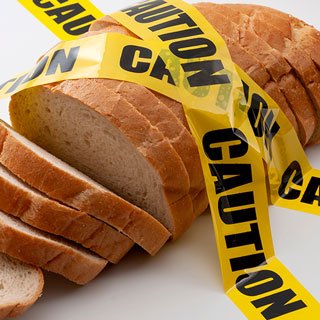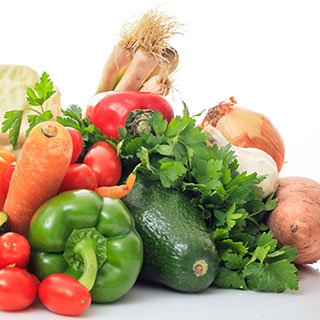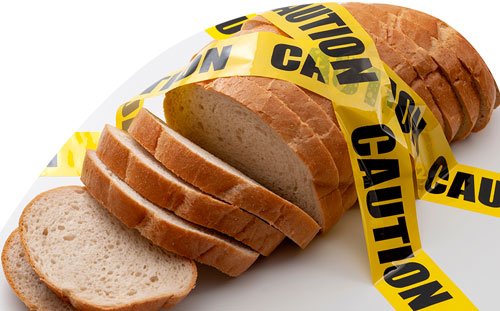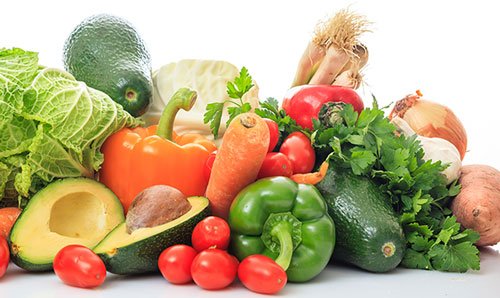The best way to lose weight fast and fall in love with your body with tried and tested methods for rapid results
Your body is perfect the way it is, but if you want to lose weight to fit into your clothes or for health reasons, follow this guide.

If you are tired of trying countless diets and exercise plans that promise rapid weight loss but deliver disappointing results, this guide will help you shed those unwanted pounds fast.
Understanding the basics of weight loss
Weight loss is a complex process involving various factors, including metabolism, hormones, and lifestyle habits. To achieve sustainable weight loss, you must have a comprehensive understanding of the fundamental principles behind it.
At its core, weight loss is about creating a calorie deficit—consuming fewer calories than your body burns. A calorie deficit can be achieved through dietary changes and increased physical activity.
When you consume fewer calories than your body needs, it is forced to tap into its fat stores for energy, resulting in weight loss.
It's important to note that not all calories are created equal. The quality and composition of your foods significantly affect your weight loss journey. Focusing on nutrient-dense foods can help you feel fuller for longer, regulate your blood sugar levels, and support overall health.
The importance of setting realistic goals
Setting realistic weight loss goals is crucial for success. Many people make the mistake of setting overly ambitious goals, leading to frustration and disappointment when they fail to achieve them.
Set goals tailored to your individual needs and circumstances.
A realistic weight loss goal is typically 1-2 pounds per week, a sustainable and healthy loss rate. This may seem like a little, but these small, consistent steps can add to significant progress over time.
Celebrate your achievements and stay motivated with non-scale victories.
Weight loss is a journey, not a destination. By setting realistic goals and celebrating your progress, you can stay focused and motivated to achieve long-term success.
The role of nutrition in fast weight loss
Nutrition is the foundation of any successful weight loss plan. What you eat and how much you consume is crucial in determining the speed and sustainability of your weight loss results.
To lose weight quickly, focus on a nutrient-dense, calorie-controlled diet emphasizing whole, unprocessed foods, including a balance of lean proteins, complex carbohydrates, healthy fats, and various fruits and vegetables.
By choosing these nutrient-rich options, you'll feel fuller for longer, which can help you naturally reduce your calorie intake without feeling deprived.
In addition to the quality of your food choices, the timing and distribution of your meals can also impact weight loss.
Eating smaller, more frequent meals throughout the day can help keep your metabolism active and prevent blood sugar spikes and crashes that can lead to cravings and overeating.
Furthermore, incorporating strategic dietary approaches, such as low-carb or intermittent fasting, can further accelerate your weight loss by optimizing your body's fat-burning capabilities.
Consult with a healthcare professional or a registered dietitian to ensure these methods are safe and appropriate for your needs.
Practical exercises for rapid weight loss
Exercise is a crucial component of any successful weight loss plan. It burns calories and helps build and maintain lean muscle mass, which is essential for a healthy metabolism.
To achieve rapid weight loss, focus on high-intensity, full-body exercises that engage multiple muscle groups simultaneously.
Exercises include high-intensity interval training (HIIT), strength training, and circuit training. These workouts burn a significant number of calories during the session and continue to burn calories long after the session due to a phenomenon known as the 'afterburn' effect, where your body continues to burn calories at an elevated rate to recover from the intense workout.
In addition to these high-intensity workouts, regular cardiovascular exercise, such as brisk walking, jogging, or cycling, can also contribute to rapid weight loss by increasing overall calorie expenditure.
Aim for 150 minutes of moderate-intensity or 75 minutes of vigorous-intensity aerobic activity weekly to see optimal results.
The key to effective weight-loss exercise is finding activities you enjoy and can consistently incorporate into your routine.
Incorporating joyful activities into your routine will help you stay motivated and committed to your fitness goals, leading to sustainable weight loss.
The impact of sleep and stress on weight loss
While diet and exercise are the primary drivers of weight loss, it's essential to recognize the significant impact of sleep and stress on your weight management efforts.
Adequate sleep is essential for weight loss, as it plays a crucial role in regulating hormones that control appetite, metabolism, and energy balance.
Lack of sleep can disrupt the balance of these hormones, leading to increased hunger, cravings for unhealthy foods, and a slower metabolism.
Aim for 7-9 hours of quality sleep each night to support your weight loss goals.
Similarly, chronic stress can have a detrimental effect on your weight loss journey. When you're under constant stress, your body releases cortisol, a hormone that can increase appetite, promote the storage of belly fat, and impair your body's ability to use insulin effectively.
To combat the adverse effects of stress, incorporate stress-reducing activities, such as playing, reading, walking, and deep breathing exercises, into your daily routine.
By prioritizing sleep and stress management, you can create a holistic approach to weight loss that addresses the underlying factors that can sabotage your efforts.
The above approach will help you lose weight rapidly and support long-term health and well-being.
Tried and tested diet plans for quick results
There is no one-size-fits-all solution for rapid weight loss. However, several tried-and-tested diet plans are effective for quick results, provided they are followed correctly and sustainably.
One popular approach is the low-carb diet, which has been shown to be particularly effective for rapid weight loss. By reducing your intake of carbohydrates and focusing on high-protein and healthy fat sources, you can put your body into a state of ketosis. In ketosis, your body begins to burn fat for fuel instead of carbs, which can lead to significant weight loss, often within the first few weeks of starting the diet.
A low-carb diet can lead to significant weight loss, often within the first few weeks of starting the diet.
Another effective option is the Mediterranean diet, which emphasizes consuming whole, unprocessed foods such as fruits, vegetables, whole grains, lean proteins, and healthy fats.
The Mediterranean diet supports weight loss and promotes overall health and well-being.
The Paleo diet can be an excellent choice for those seeking a more structured plan. These diets eliminate processed foods, sugar, and other potentially inflammatory ingredients, which can help reduce bloating, improve digestion, and facilitate rapid weight loss.
Regardless of your specific diet plan, the key is to focus on nutrient-dense whole foods that will keep you feeling full and satisfied while supporting your body's natural fat-burning processes.
Combining a healthy, calorie-controlled diet with regular exercise and lifestyle modifications can help you achieve rapid and sustainable weight loss.
Incorporating intermittent fasting for rapid weight loss
Intermittent fasting has emerged as a highly effective strategy for rapid weight loss. This approach involves cycling between periods of fasting and eating, and it has been shown to have numerous benefits for weight management, metabolic health, and overall well-being.
One of the primary mechanisms by which intermittent fasting promotes weight loss is creating a calorie deficit.
During fasting, your body is forced to tap into its fat stores for energy, reducing overall calorie intake. Intermittent fasting has been found to boost metabolism, enhance insulin sensitivity, and reduce inflammation, all of which can contribute to accelerated weight loss.
Several different intermittent fasting protocols exist, each with unique approaches and benefits. Some popular methods include the 16:8 plan (fasting for 16 hours and eating within an 8-hour window), the 5:2 diet (restricting calories for 2 non-consecutive days per week), and the OMAD (One Meal a Day) approach.
When incorporating intermittent fasting into your weight loss plan, it's essential to sustainably and tailor it to your individual needs and preferences.
Start with a manageable protocol and gradually increase the duration or frequency of your fasting periods as your body adapts. Ensure a nutrient-dense diet during your eating periods to support overall health and prevent nutrient deficiencies.
By combining intermittent fasting with a healthy, calorie-controlled diet and regular exercise, you can unlock the full potential of this powerful weight-loss strategy and achieve rapid and sustainable results.
The benefits of drinking water for weight loss
Staying hydrated is a crucial yet often overlooked component of any successful weight loss plan. Drinking adequate water can significantly impact your ability to lose weight quickly and effectively.
One of the primary benefits of drinking water for weight loss is that it can help reduce calorie intake. Water has no calories and can help fill you up, making you feel less hungry and less likely to overeat.
Additionally, drinking water before meals has been shown to increase feelings of fullness, leading to a reduced calorie intake during the meal.
Water also plays a vital role in supporting your body's natural metabolic processes. Adequate hydration helps to ensure that your body's cells, tissues, and organs are functioning optimally, boosting your overall metabolic rate and increasing the number of calories your body burns throughout the day.
Furthermore, drinking water can help reduce water retention and bloating, giving the appearance of weight gain. Staying hydrated can also help flush out excess water and toxins from your body, leading to a more toned and slimmer appearance.
Aim to drink at least 8 cups (64 ounces) of water daily, and even more if you engage in regular physical activity or live in a hot, dry climate, to maximize the benefits of water for weight loss.
Add lemon, lime, or other fresh fruits to your water to make it more appealing and enjoyable to drink.
Tracking progress and staying motivated
Maintaining motivation and tracking your progress are essential to successful weight loss. Without a clear understanding of your progress, becoming discouraged or losing sight of your goals can be easy.
Track your progress by monitoring your weight, body measurements, and other important metrics.
Weigh at the same time each day, measure your waist, hips, and other areas, and even track your body composition (such as muscle mass and body fat percentage) using a body composition scale or other tools.
Remember that weight can fluctuate day-to-day due to factors like water retention, hormonal changes, and the timing of your meals. Instead of focusing solely on the number on the scale, consider tracking your progress over time and looking for trends and patterns in your measurements.
In addition to tracking your physical progress, it's also essential to celebrate non-scale victories, such as improvements in your energy levels, mood, and overall well-being.
All achievements can be as meaningful as the number on the scale and can help keep you motivated and focused on your long-term goals.
To stay motivated, consider setting small, achievable goals and rewarding yourself when you reach them. This could be as simple as treating yourself to a relaxing spa day or buying a new piece of clothing that makes you feel confident and empowered.
By tracking your progress and celebrating your successes, you can stay motivated and focused on your weight loss journey and ultimately achieve the rapid and sustainable results you've been striving for.
Finding a sustainable approach to long-term weight management
Achieving rapid weight loss is a significant accomplishment. Still, maintaining those results over the long term is the true challenge.
Adopt a holistic approach that addresses the various factors contributing to weight management to ensure that your weight loss journey is sustainable and leads to lasting change.
While the strategies outlined in this guide can help you achieve rapid weight loss, it's crucial to remember that sustainable weight loss is a marathon, not a sprint.
Avoid resorting to extreme or unsustainable measures, which often lead to rebound weight gain and harm to overall health and well-being.
Instead, focus on developing a balanced, nutrient-dense diet and an exercise routine that you can maintain over time. Incorporate lifestyle changes, such as prioritizing sleep, managing stress, and staying hydrated, to support your weight loss efforts and promote long-term success.
Here's the truth: Remember, weight loss is a highly personal journey, and what works for one person may not work for another. Be patient, flexible, and willing to experiment to find the best approach that suits your needs and preferences.
By taking a comprehensive and sustainable approach to weight loss, you can achieve your desired results and maintain them for years to come.
Embrace this journey as an opportunity to transform your body, mindset, and overall quality of life. Dedication, consistency, and a positive attitude can unlock a healthier, happier, and more vibrant version of yourself.





















































